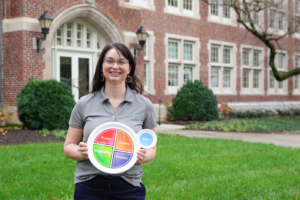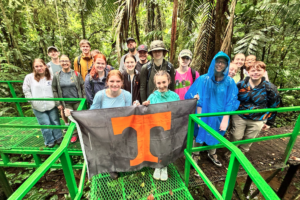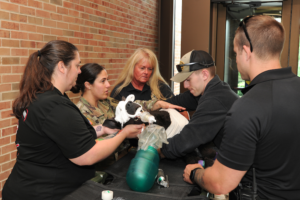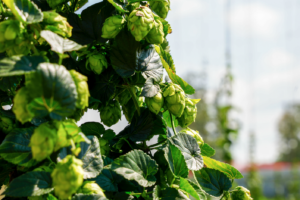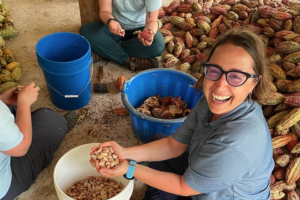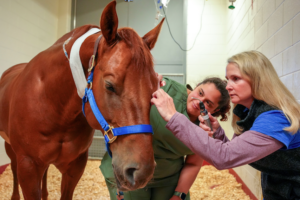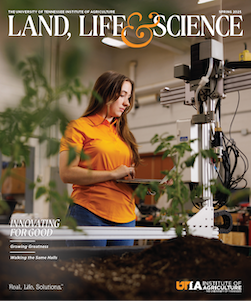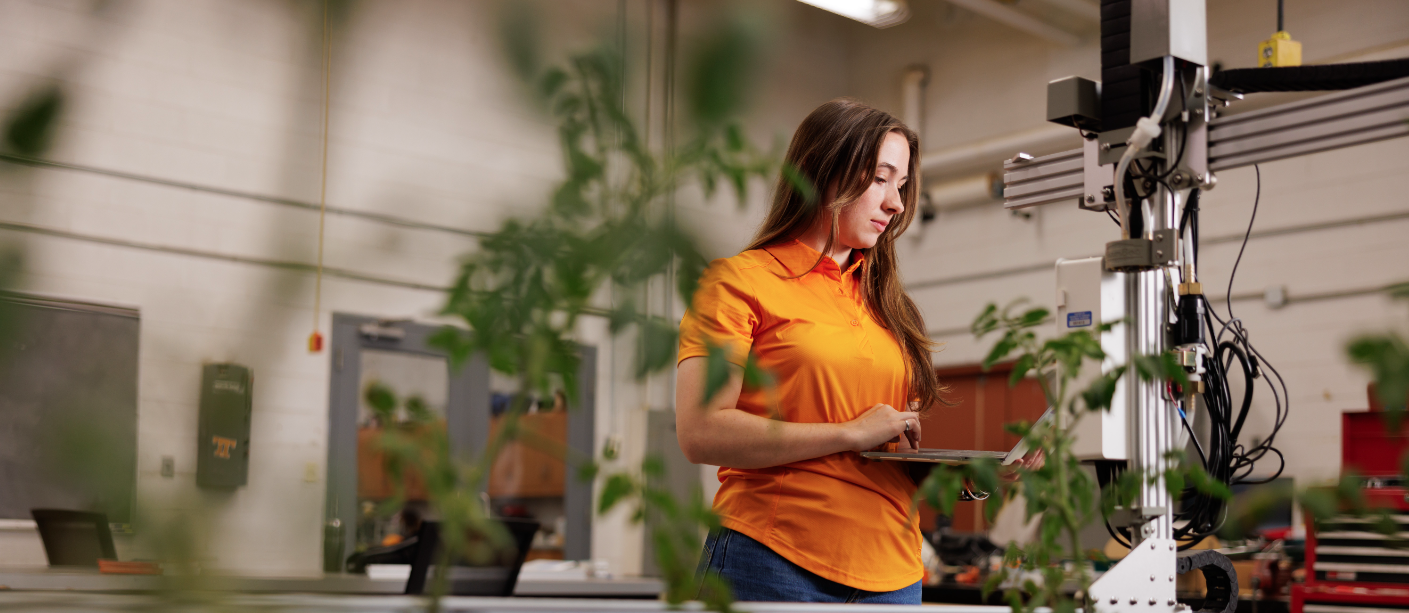
Today’s agriculture thrives on innovation, with new advances increasing sustainable practices, driving increases in yields, and securing a resilient future for farms and farm families.
Our mission of discovering and delivering Real. Life. Solutions. is central to everything we do at the UT Institute of Agriculture. It’s the goal that fuels science in our labs and outdoor laboratories, the teaching that occurs in our classrooms that prepares new generations of agricultural leaders, and it’s the research-based knowledge that our Extension agents and specialists share with residents in each of Tennessee’s ninety-five counties.
Here are some snapshots of innovations underway at the institute, from advancing precision agriculture, paving the way for a new bioeconomy, to assessing the performance of double-cropping techniques for organic farming. Take a look at today’s UTIA.
Precision Agriculture for Poultry, Beef, and Dairy Producers
For decades, the UT Institute of Agriculture has led in precision agriculture, enhancing row-crop production through technology and mechanics. This work includes precise GPS mapping for targeted pest control and irrigation to boost grain quality and yield. Researchers are now focusing on more efficient poultry, beef, and dairy production.
Precision livestock farming techniques involve real-time monitoring of individual animals’ health and well-being. By tracking behavior, biological changes, and environmental conditions, producers can make better management decisions for animals, herds, or flocks. Robert Burns, distinguished professor of biosystems engineering and soil science, is project coordinator for a research team, which unites the expertise of more than forty scientists, staff members, and graduate and undergraduate students.
Supporting facilities include robotic milkers at the Little River Unit of the East Tennessee AgResearch and Education Center, advanced technology at the Middle Tennessee AgResearch and Education Center at Spring Hill for precision beef production and genetics research, and four state-of-the-art commercial-scale broiler houses along with a poultry and livestock research laboratory and advanced technology for sustainable beef production research at the Plateau AgResearch and Education Center in Crossville. Learn more about the initiative at plf.tennessee.edu.
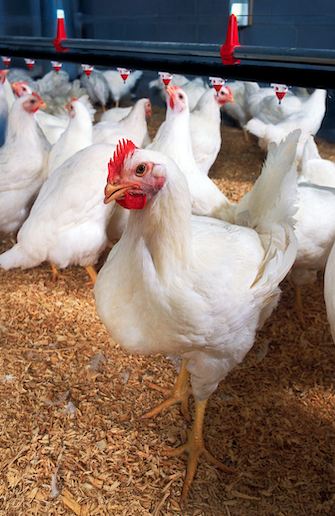
Groundwork for a Circular, Sustainable Bioeconomy
UT AgResearch is innovating sustainable products by merging agriculture and forestry with industrial needs. Collaborating with the National Science Foundation, Oak Ridge National Laboratory, and Volkswagen, they aim to develop carbon-neutral crop technologies for consumer goods. Biomass from forages and young trees grown in Tennessee can be used for products like jet fuel car parts, and building and packing materials. The focus is on ensuring a steady supply chain and affordable production.
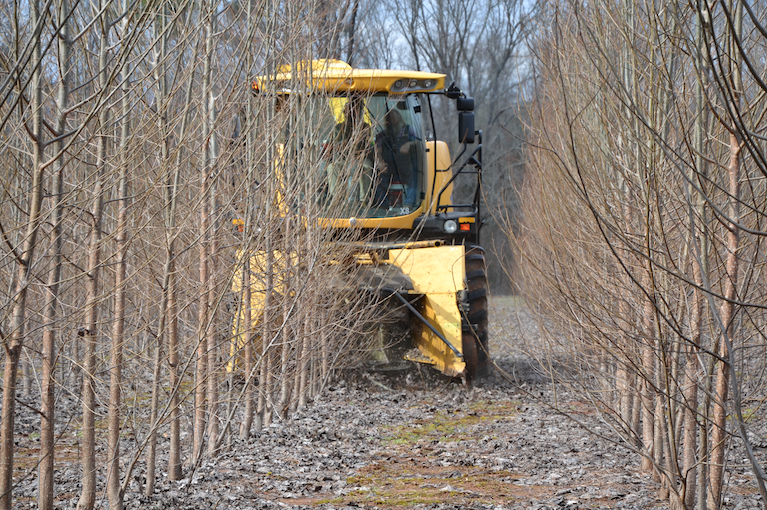
Researchers at the UT Center for Renewable Carbon and Department of Agricultural and Resource Economics led by center director and professor Niki Labbé are partnering with HudsonAlpha Institute for Biotechnology through a $1 million National Science Foundation grant to develop technology for a green bioeconomy. This initiative aims to reduce reliance on petroleum-based materials.
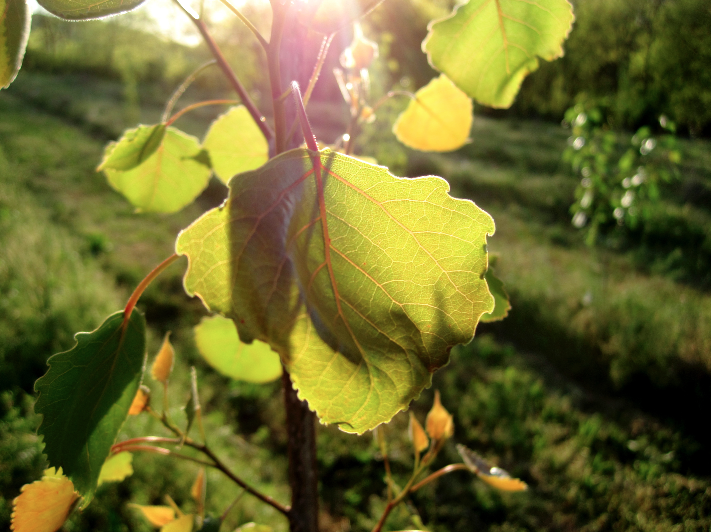
Over five years, funded by a $20 million government award, UT and ORNL will create a circular bioeconomy testbed connecting auto manufacturing with agriculture and forestry. Erin Webb, a 1999 Herbert College of Agriculture graduate and lead for ORNL’s Bioresource Science and Engineering Group, and Labbé will lead this convergent research effort. Twenty new research scientists and twenty-five PhD graduate students will be involved in this effort.
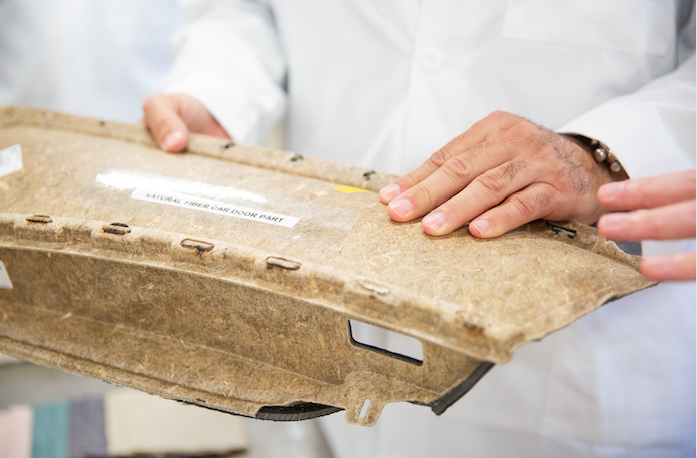
Greater Profitability for Organic Grain and Forage Production
Double-cropping grains and forages is common in conventional farming but not well-researched for organic growers in the Southeast. Asher Wright of Caney Fork Farms in Carthage, Tennessee, sees its potential.
“We face unique weed, disease, and climate pressures in organic farming in the Southeast. Temperature, humidity, and the long growing season increases our pest pressure,” Wright says. He adds that double cropping could mitigate this by providing multiple harvests that spread the risk. This also would boost profits and sustainability for organic producers.
With funding from the US Department of Agriculture Organic Transitions Program, researchers from UTIA, led by UT biosystems engineering and soil science associate professor Sindhu Jagadamma, and from the University of Florida are conducting a four-year study on double cropping’s potential to increase organic yields and reduce market gaps.
Field experiments on certified organic lands in Knoxville and Citra, Florida, will evaluate different residue and weed management strategies’ impact on productivity and soil health. The study also will measure nutrient cycling, soil carbon accumulation, and overall soil health. Results will be shared through comprehensive extension and education programs in both states.

Explore More on
Cover Articles
MORE FROM THIS ISSUE
